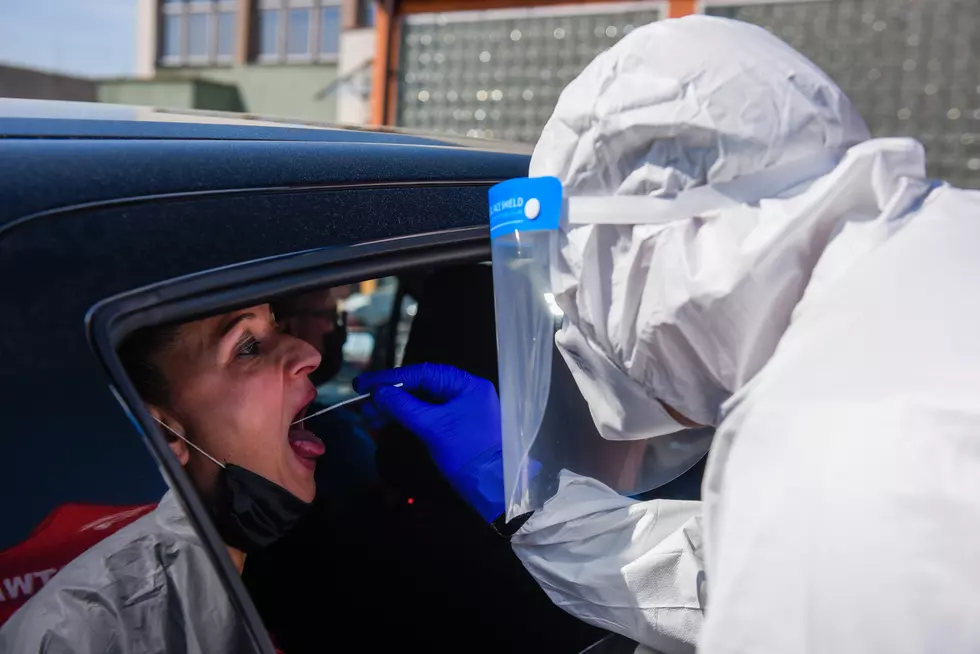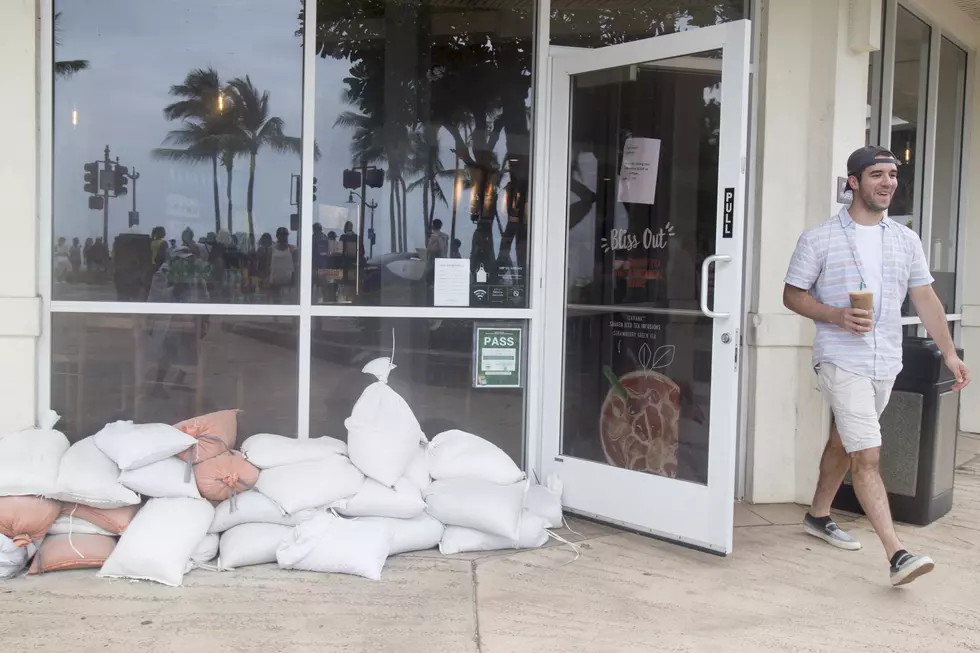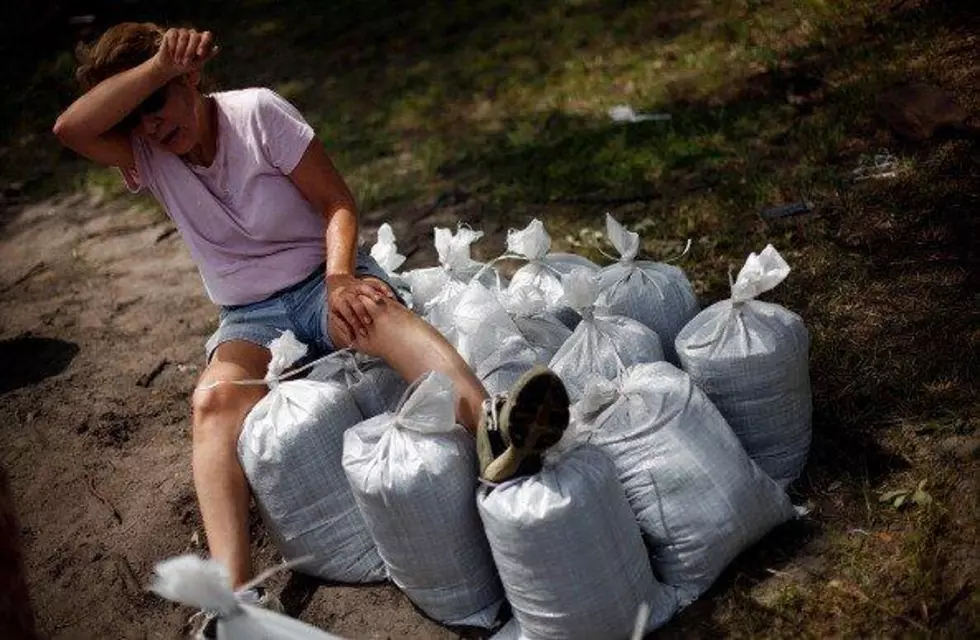
Oddly-Named COVID Variant Making Its Way Into Louisiana for Possible ‘Summer Surge’, Experts Warn
A new set of COVID-19 variants, which collectively have an odd name to identify them, that have been identified in Louisiana (particularly the northern part of the state) seem to be evidence of a new "summer surge" of the virus that sparked a global pandemic just a few years ago.
Health experts are warning folks about the FLiRT variant - or rather, variants - which stem from the JN.1 variant that was making the rounds through Louisiana in December.

The JN.1 variant was reported to have some unique symptoms, which appeared among those who tested positive for the strain in Louisiana and across the country.
Trouble Sleeping: 10.8 percent of those diagnosed reported trouble sleeping.
Increased Anxiety: 10.5 percent of those diagnosed reported more anxiety.
READ MORE: The Latest COVID Variant in Louisiana Has Bizarre New Symptoms
But, as most viruses do, COVID-19 has continued to mutate, with more variations becoming prevalent as spring turns into summer.
The Shreveport Times spoke with a health expert to learn more.
Dr. Krista Queen, Director of the Viral Genomics and Surveillance Center for Emerging Viral Threats at LSU Health Shreveport, viral threats specialist said, "FLiRT is an interesting name for this new variant and it's referring to a couple of different mutations that are present and actually it's not just one variant, it's a group of variants."
According to Dr. Queen and the CDC, there are a few symptoms specific to FLiRT to watch out for.
• Fever or chills
• Cough
• Sore throat
• Congestion or runny nose
• Headache
• Muscle aches
• Difficulty breathing
• Fatigue
• New loss of taste or smell
• "Brain fog" (feeling less wakeful and aware)
• Gastrointestinal symptoms (upset stomach, mild diarrhea, vomiting)
However, there are currently mixed beliefs on whether or not this could result in a "summer surge."
"The FLiRT strains are subvariants of Omicron," Yale Medicine wrote on its site. "One of them, KP.2, accounted for 28.2% of COVID infections in the United States by the third week of May, making it the dominant coronavirus variant in the country; another, KP.1.1, made up 7.1% of cases."
But, the medical site also notes that this variant does not necessarily mean a surge.
"Some experts have suggested that the new variants could cause a summer surge in COVID cases," the site explained. "But the Centers for Disease Control and Prevention (CDC) also reports that COVID viral activity in wastewater (water containing waste from residential, commercial, and industrial processes) in the U.S. has been dropping since January and is currently 'minimal.'”
How to Prevent Infection
Preventing COVID-19 involves several important steps based on guidelines from health authorities such as the CDC and WHO. First and foremost, getting vaccinated and staying up-to-date with COVID-19 vaccines is crucial, as they are effective at reducing the severity of illness and preventing severe disease, hospitalization, and death.
Hand hygiene is another key measure; washing your hands frequently with soap and water for at least 20 seconds is essential, especially after being in public places, touching your face, or coughing and sneezing. When soap and water are not available, using a hand sanitizer with at least 60% alcohol is recommended.
Wearing a mask in indoor public spaces, particularly in areas with high transmission rates or where physical distancing is challenging, is also important. The mask should cover both your nose and mouth and fit snugly against the sides of your face.
Maintaining physical distance, ideally at least 6 feet from others who are not in your household, helps reduce the spread of the virus. It's advisable to avoid crowded places and large gatherings where distancing is difficult. Additionally, minimizing close contact with people who are sick or showing symptoms of COVID-19 is essential, and staying home if you are feeling unwell or have been exposed to the virus is critical.
Regular cleaning and disinfecting of frequently touched surfaces, such as doorknobs, light switches, and smartphones, should be practiced. Using disinfectants that meet EPA criteria for effectiveness against COVID-19 is recommended. Improving indoor ventilation by opening windows and doors, and using air purifiers and exhaust fans to increase air circulation, can also help reduce the concentration of viral particles indoors.
Monitoring your health for symptoms like fever, cough, shortness of breath, and loss of taste or smell is important. If you experience symptoms or suspect exposure to COVID-19, getting tested and following public health guidance is necessary.
Staying informed with the latest information from trusted sources like the CDC and WHO, and following local public health recommendations and guidelines, ensures you are aware of the latest measures to protect yourself and others. By consistently following these preventive measures, you can significantly reduce the risk of contracting and spreading COVID-19.
Suggested Remedies for Flu and COVID Symptoms from Louisiana
Gallery Credit: TRACY WIRTZ
More From News Talk 96.5 KPEL









